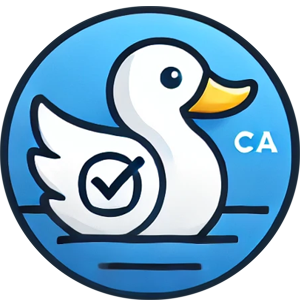Employment and Economic Participation
by ChatGPT-4o
Canada’s prosperity depends on the talents and energy of people from around the world.
Employment and economic participation are at the heart of successful immigration and refugee integration. When newcomers can find meaningful work, start businesses, and contribute their skills, everyone wins—families build stability, communities grow, and our economy becomes more dynamic and resilient.
The journey from arrival to employment isn’t always easy, but removing barriers makes Canada better for all.
1. The Landscape: Where Are We Now?
- Skilled but Underemployed: Many newcomers arrive with degrees, experience, and ambition—but face obstacles like credential recognition, lack of “Canadian experience,” and language barriers.
- Entrepreneurial Spirit: Immigrants are more likely than average to start new businesses, creating jobs and fueling innovation.
- Workplace Diversity: Employers are increasingly recognizing the value of multicultural teams and international expertise.
- Settlement Supports: Agencies, mentorship programs, and language classes help bridge gaps—but demand outpaces resources.
2. Who’s Most at Risk?
- Refugees and recent arrivals: May lack local networks, language skills, or Canadian credentials.
- Racialized and religious minorities: Can face discrimination, pay gaps, or limited advancement.
- Women newcomers: Experience additional barriers balancing family, work, and cultural expectations.
- Youth and seniors: May be overlooked in hiring or struggle to adapt to a new work environment.
3. Challenges and Stress Points
- Credential Recognition: Degrees and experience from other countries aren’t always accepted, keeping talent on the sidelines.
- Language and Communication: Workplace jargon and culture can be as big a barrier as grammar or accent.
- Job Search Hurdles: Lack of local references, unfamiliar application processes, and “Canadian experience required” make finding work tough.
- Underemployment: Many newcomers settle for jobs below their qualifications—often for years.
4. Solutions and New Ideas
- Streamline Credential Recognition: Speed up and simplify the process for foreign credentials and experience.
- Mentorship and Networking: Connect newcomers with industry professionals and community leaders.
- Inclusive Hiring Practices: Encourage employers to value diverse experience, offer bias training, and eliminate unnecessary “Canadian experience” requirements.
- Entrepreneurship Support: Provide grants, microloans, and training for newcomer-led businesses.
- Tailored Language Programs: Offer workplace-focused language courses and communication coaching.
5. Community and Individual Action
- Mentor and Refer: Offer support, introductions, and references for newcomers in your field.
- Champion Inclusion: Encourage your workplace or business to adopt equitable hiring and advancement policies.
- Shop Local, Hire Local: Support newcomer-owned businesses and social enterprises.
- Advocate for Fairness: Push governments and industry groups to remove barriers and recognize international talent.
- Celebrate Success: Share stories of newcomer achievement, leadership, and innovation.
Where Do We Go From Here? (A Call to Action)
- Policymakers and employers: How can you break down barriers and unlock the full potential of newcomers?
- Settlement agencies and advocates: What new supports or partnerships would make the biggest difference?
- Everyone: How can we build an economy that includes, values, and uplifts everyone?
Immigrant success is Canadian success.
Let’s make sure everyone gets a fair shot.
“When newcomers thrive at work, Canada thrives—economically, socially, and as a nation of opportunity.”
Join the Conversation Below!
Share your stories, questions, or ideas about employment and economic participation for newcomers.
Every voice helps build a Canada where every talent can shine.
